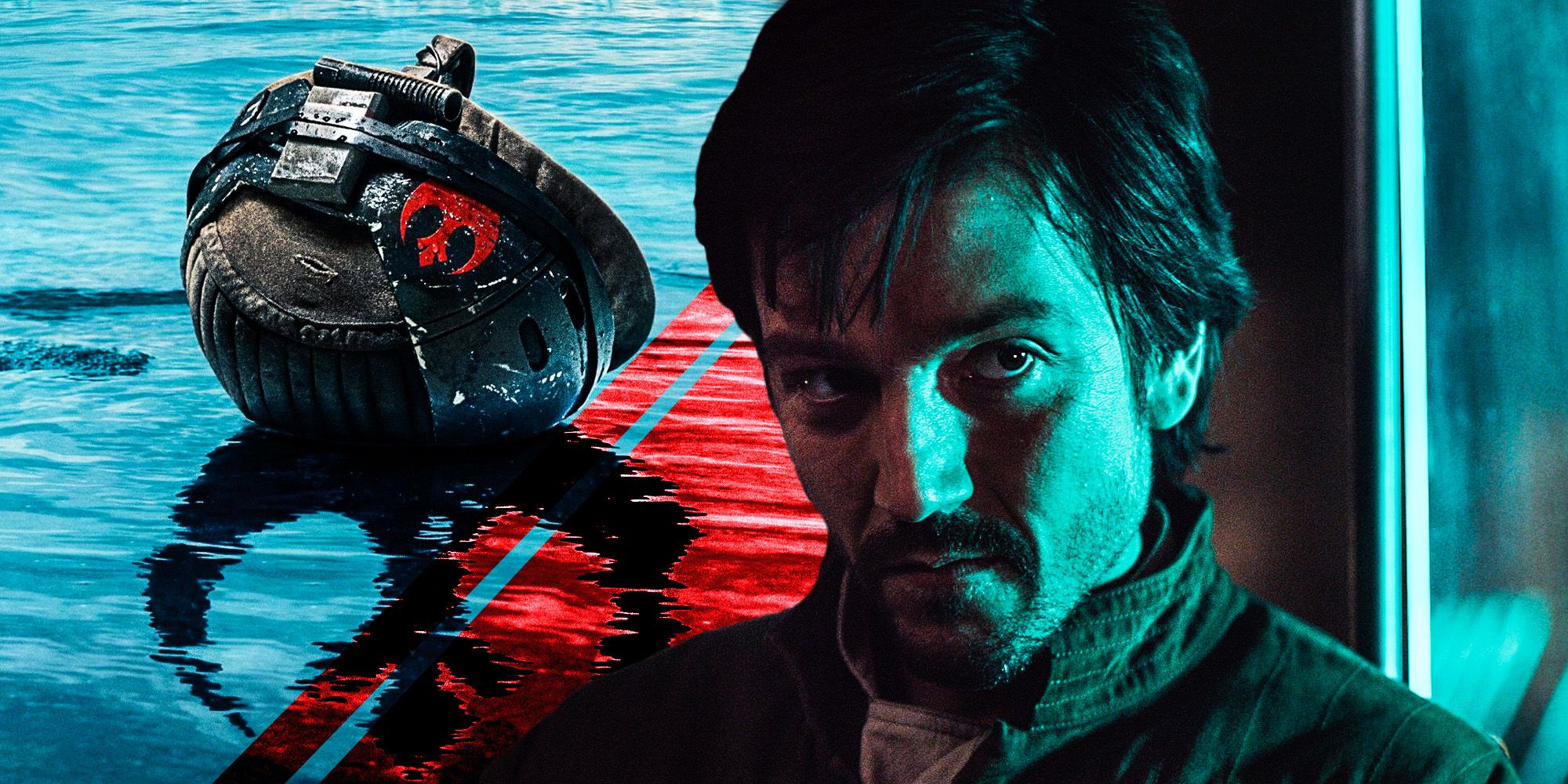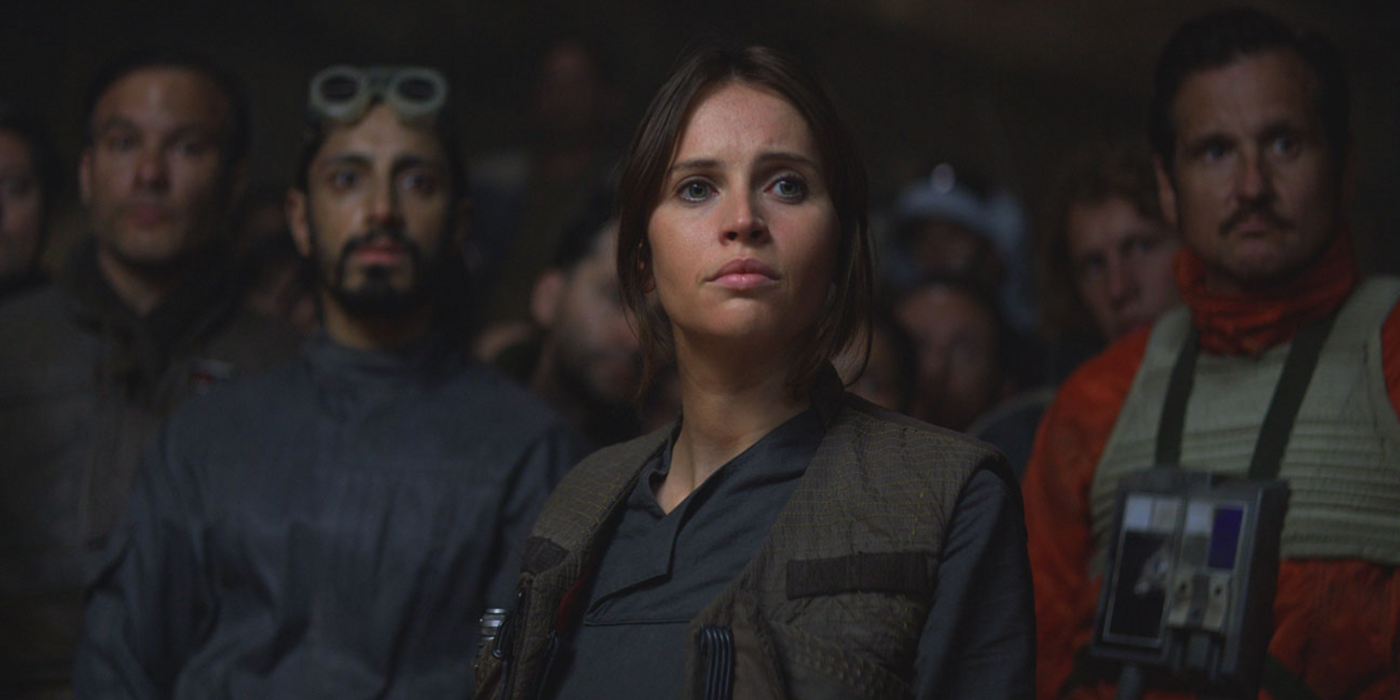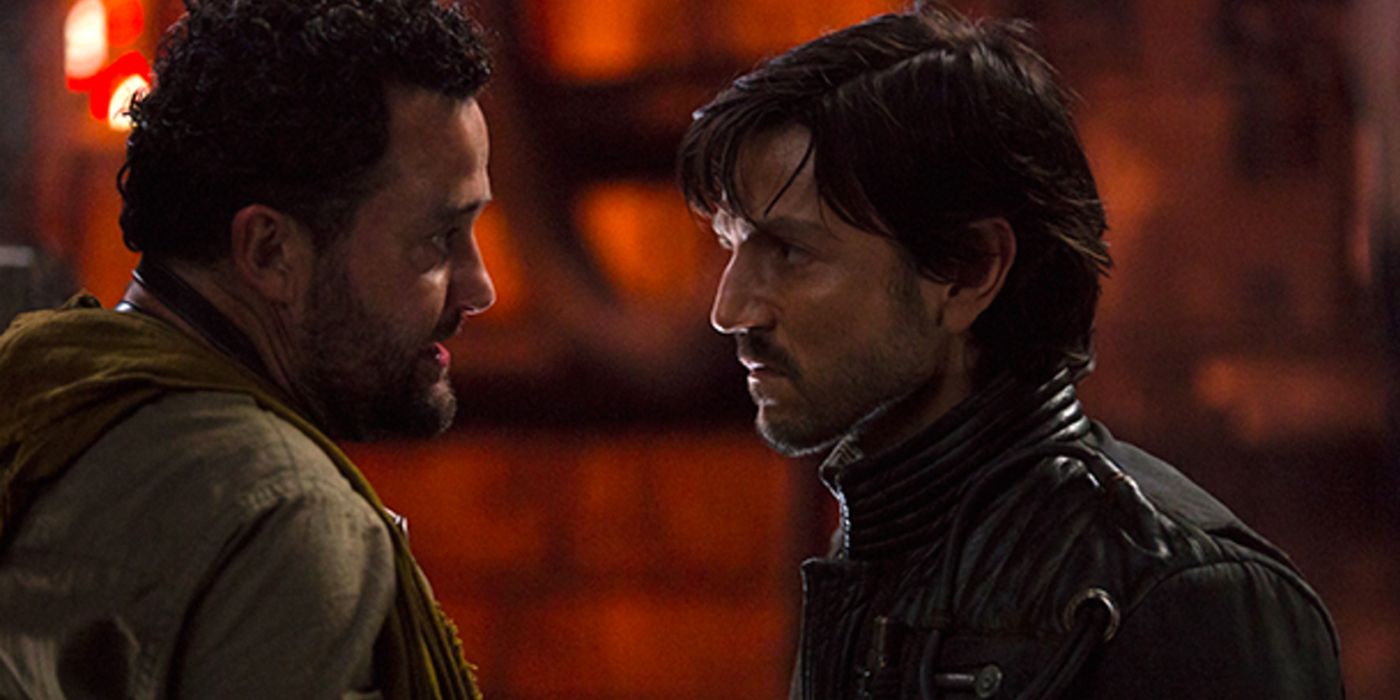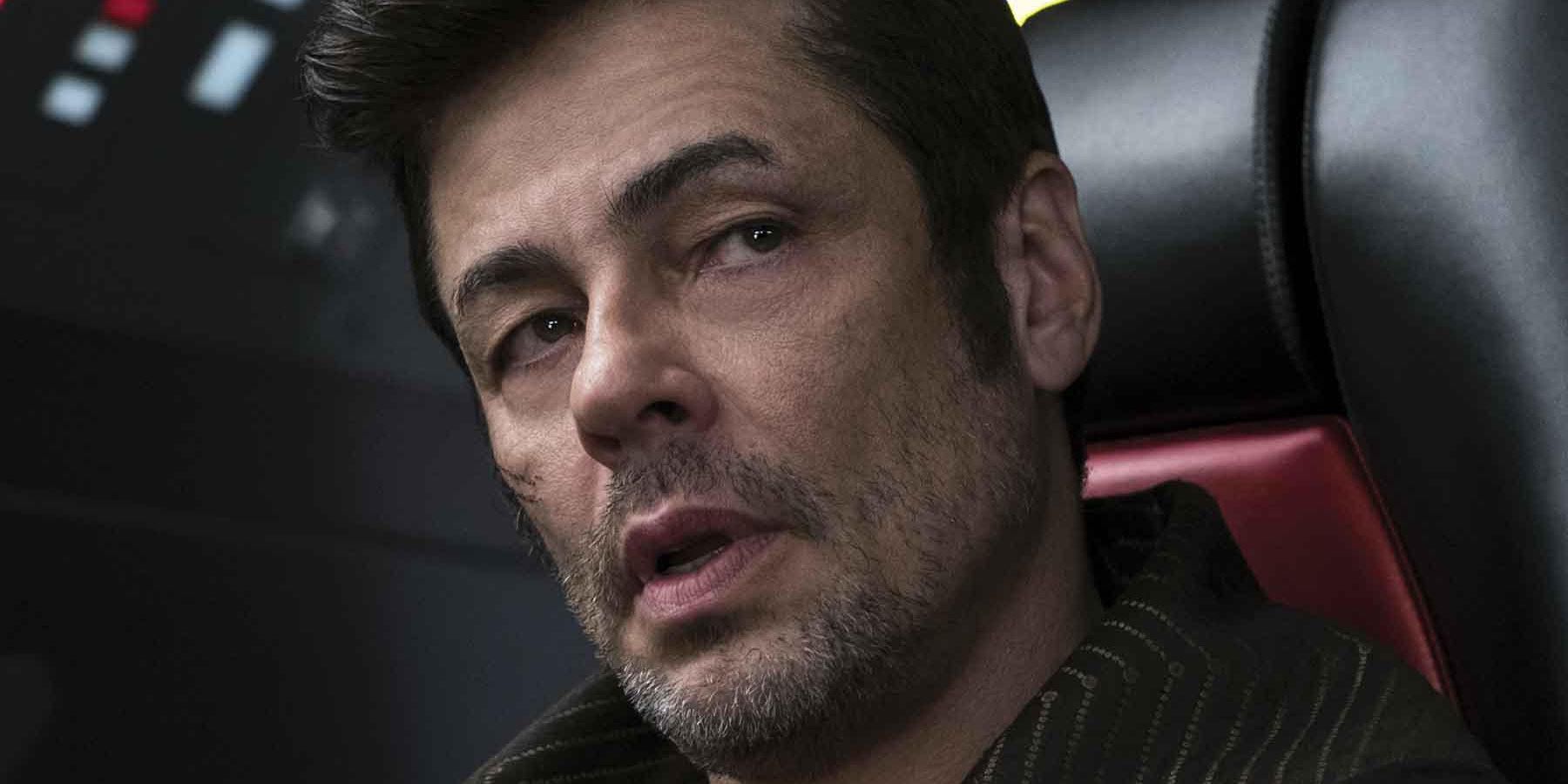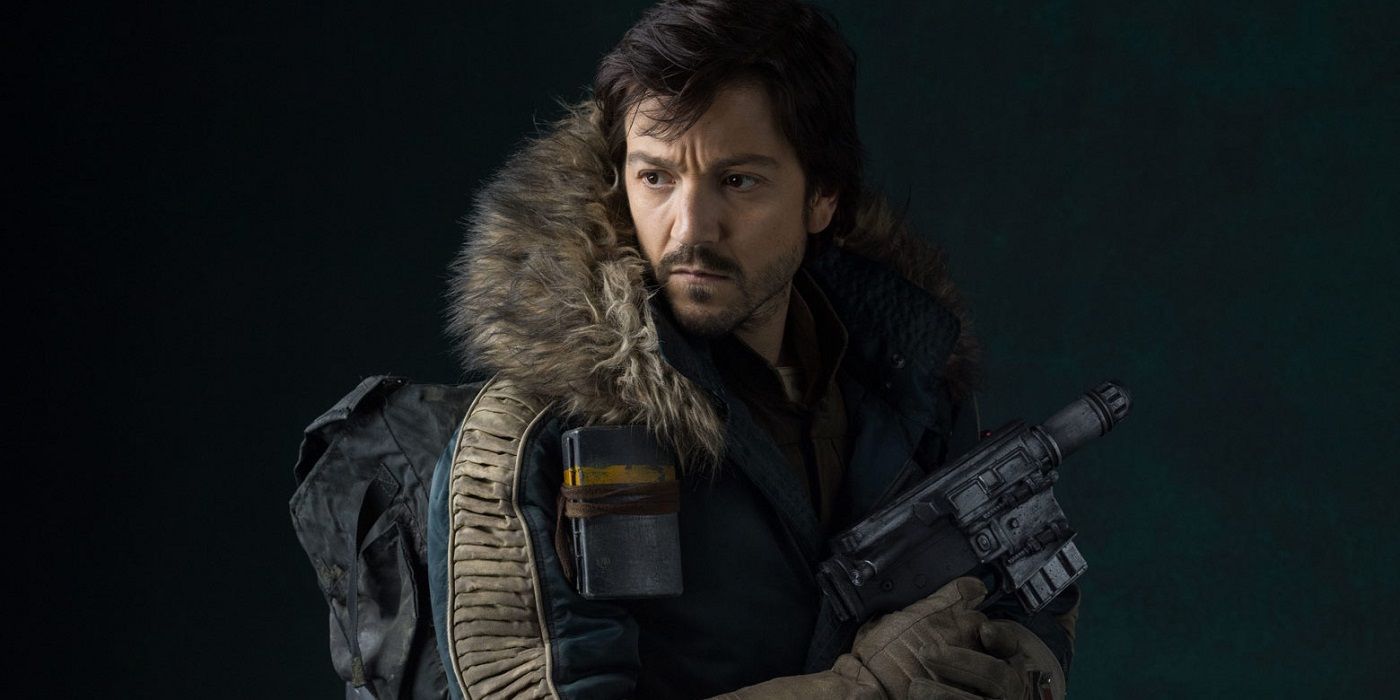Everyone knows the Rebellion as plucky heroes fighting evil, but Andor can flip the script and weave darker elements into the famous alliance. Star Wars fans with a Disney+ subscription will get their money's worth over the next few years, as a range of exciting new shows follow The Mandalorian onto the platform. One of the first projects confirmed was Andor, a spin-off from 2016's Rogue One: A Star Wars story starring Diego Luna's Cassian Andor. Set five years prior to the movie's events, Andor releases in 2022 and co-stars Stellan Skarsgård, Fiona Shaw, and Genevieve O'Reilly reprising her role as Mon Mothma.
Since Cassian Andor serves as a Rebel Alliance intelligence officer, the guerrilla organization introduced in 1977's Star Wars are clearly going to play a big part in the upcoming series. And with Mon Mothma back to dish out orders and remind everyone roughly how many Bothans died during each mission, Andor will chronicle Cassian's career sourcing secrets and infiltrating enemy strongholds in the name of the Rebel Alliance.
The morality of the Star Wars universe is traditionally rather black and white. There is literally a light side and a dark side. The galaxy far, far away has occasionally dabbled in ethical gray areas, but results have been mixed. Fortunately, Andor offers the perfect opportunity to take a deep breath and delve headfirst into the grimier aspects of the Rebel Alliance, proving it's not all high-fives in the hanger and teaming up with forest bears.
Star Wars' Future Needs A Different Take On The Rebellion
The original Star Wars trilogy was a simpler time, and this is reflected in the one-dimensional portrayal of the Rebel Alliance. Upon meeting these brave heroes, Luke Skywalker finds a place where he belongs - a gathering of pilots and strategists united in their aim of bringing down Palpatine's Empire. Even when the Rebels do something that might be considered morally questionable, such as blowing up a Death Star full of mostly-innocent workers, the Star Wars movies quietly brush any misgivings under the rug, leaving no doubt as to who the good guys are supposed to be. This tone is carried through the majority of the franchise. Even in The Mandalorian - a show never afraid to slip in some darker moments - the New Republic's pilots and ex-Rebel Cara Dune are afforded a sympathetic spotlight.
Glancing at the litany of upcoming Star Wars projects, future appearances of the Rebel Alliance will likely adopt the same glorified depiction of Luke Skywalker's freedom fighters. Patty Jenkins' Rogue Squadron and Rangers of the New Republic both sound like Top Gun in space stories that promote the daring X-Wing action of the Rebellion's finest. Obi-Wan Kenobi's solo series might touch upon the origins of the Rebellion through Bail Organa, but this will also err on the heroic end of the Star Wars spectrum.
The only announced Star Wars offering that naturally lends itself to a more refreshing take on the Rebellion is Andor. In their big screen escapades, the audience only witnessed the outward face of the Rebellion - the hopeful beacon in a dark galaxy. These are the missions that make the headlines, and later become legendary tales told everywhere from Tatooine to Trask. But it stands to reason that behind the joyous celebrations and self-righteousness lies a web of deception, espionage, violence, and all the things that stay hidden from the citizens of the Star Wars universe. As an intelligence officer, Cassian Andor can be the fulcrum in exposing the Rebel Alliance's murky secrets.
Rogue One Sets Up A Darker Star Wars Tone (That Works)
The Star Wars film series has been beset by division in recent years, and Rogue One is the last cinematic release more or less everyone liked. Intriguingly, Rogue One's enthusiastic response can be partly attributed to a far darker tone than fans were used to from their Star Wars output. The troubled Gareth Edwards effort struck closer to a classic war tale than a sci-fi adventure romp, and the ruthless "everybody dies" ending underlined that difference. But Rogue One doesn't just hammer home the consequences of what happens when underdog rebels go up against tyrannical governments, the film also unveils the ethical compromises required to win such a desperate battle.
Rogue One introduces Cassian Andor on the Ring of Kafrene, meeting with an underground contact named Tivik. Part of Saw Gerrera's mob, Tivik moonlights as a Rebel informant, passing snippets of intel to Andor during clandestine backstreet meetings. But when their conversation is clocked by nearby Stormtroopers, Andor shockingly kills his informant buddy. Cassian might argue that Tivik never could've escaped the Stormtroopers, especially with an injured arm, and killing him with a quick blaster bolt was kinder than what the Empire would've done. If he were honest, however, Andor would have to admit that he killed Tivik because his capture would've endangered the Rebel Alliance, proving cold-blooded murder is justifiable if it serves the Rebellion's cause.
As if the sad, dead eyes of Tivik don't generate enough moral ambiguity around the Rebellion's methods, Andor is later ordered by a superior officer to execute Galen Erso, Jyn's father and the Death Star designer who sneaked a fatal weakness into the blueprints. Although Cassian uses his discretion and spares Galen's life, a Rebel fleet drops some bombs on the facility just to be sure, and Jyn's dad perishes regardless. Again, Rogue One proves that, when the situation calls for it, the Rebel Alliance can be duplicitous and ruthless, and are willing to kill innocents in the right circumstances. Since Andor is effectively a TV prequel to Rogue One, the series should remain within that same dimly-lit ballpark.
Andor Can Explain A Last Jedi Sub-Plot
Like Rogue One, Rian Johnson's The Last Jedi tries to upend the usual Rebel-good, Empire-bad dynamic, albeit less successfully. Benicio del Toro's DJ reveals to Finn and Rose that the Resistance and First Order both buy their weapons from the same arms dealers, begging the question of how the good guys are able to stomach cutting deals with these unscrupulous suppliers. Andor could show Cassian and his fellow Rebel spies tracking down arms dealers, competing with Imperials for lucrative arrangements in shady bars, and compromising their values to ensure a steady supply of X-Wings - the kind of dirty business Luke and Leia wouldn't get within a hundred parsecs of. This way, Rogue One can set up The Last Jedi's revelation that the good guys aren't always as squeaky clean as they make out.
Cassian Andor Should Be An Antihero In His Solo Series
When Rogue One begins, Cassian Andor is a loyal-to-a-fault soldier of the Rebel Alliance, but through meeting Jyn Erso, he begins thinking for himself (i.e. more like a traditional protagonist). But with Andor taking place a whole five years prior, Diego Luna's character should be a harder, grizzled antihero in his Disney+ solo series, more akin to the lethal agent that killed Tivik than the softer heart who defied orders to spare Galen Erso. More importantly, the scene in which Andor receives the order for Galen's assassination implies this isn't his first rodeo taking someone's life. Andor can expose how shadowy the spy's earlier missions were, and how many kills he made in the Rebellion's name. Some victims will no doubt thoroughly deserve to find themselves on the wrong end of Cassian's blaster, but others will be more like Galen and Tivik - good people caught in the wrong place at the wrong time.
The Mandalorian's Din Djarin emphatically proves that antihero leads can thrive within the Star Wars format, and since Cassian Andor can't overtake his Rogue One character development on Disney+, he should adopt the same ethos of "questionable means; noble ends." Cassian's arc in Andor could even be a test of how far he'll go for the Rebel cause. Killing a doomed informant? Fine. But could Cassian leave behind an ally who was holding him back? Would he be willing to risk civilian casualties if it meant dealing a crippling blow to the Empire? These are the difficult questions that hang over the Rebel Alliance in Andor.

